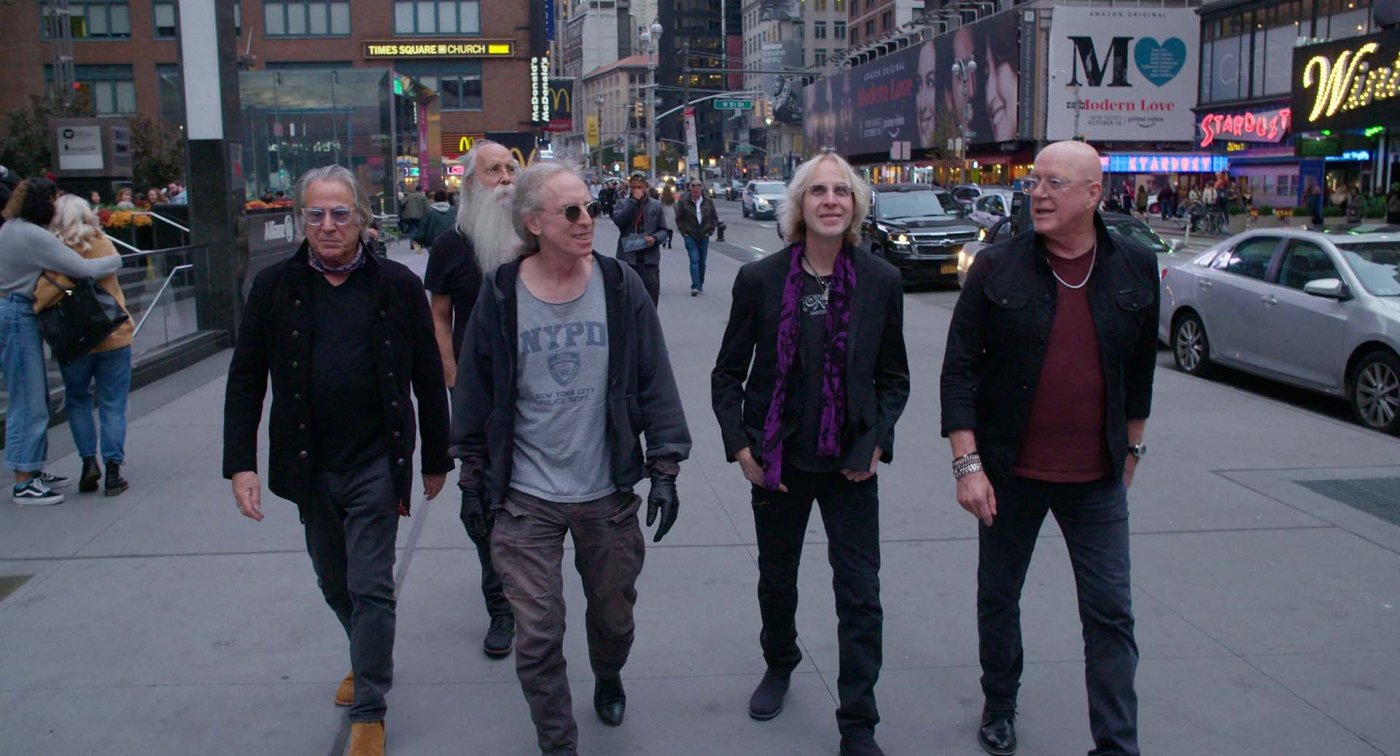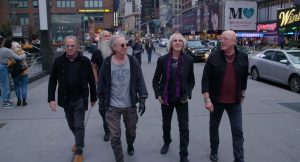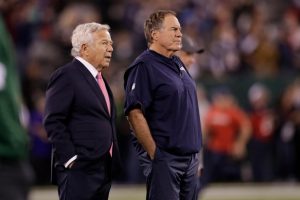
For 50 years, these musicians backed stars like Stevie Nicks and James Taylor. This is their story
Bassist Leland Sklar says there was no hesitation when drummer Russ Kunkel, guitarists Danny Kortchmar and Waddy Wachtel and himself were approached to do a documentary about their lives as four of the greatest Los Angeles session musicians of the past 50 years.
He was a little surprised, though.
“Never in a million years did it ever occur enter my mind that there would ever be anything like this done,” Sklar says on a recent video call with Kunkel, Wachtel, and director Denny Tedesco. “I mean, we just kind of loved playing and went to work and did what we did.
“Never really thought about it moving to the level that it’s done,” he says.
“Immediate Family” opens in theaters on Friday, Dec. 15. It’s a warm-hearted documentary that illustrates how these four players played a major part of many of the greatest singles, albums and tours of the last five decades. Artists such as James Taylor, Carole King, Jackson Browne, Stevie Nicks, Keith Richards, Linda Ronstadt, and Phil Collins are among the stars in the film who testify to their greatness.
But it’s also a story of friendship, which in recent years, with the addition of singer-guitarist Steve Postell, led to the formation of their own band, the name of which provides the movie’s title.
“My expectation certainly was never that a documentary would be done about me or my partners in crime here,” Sklar says. “But the first time I saw it, it was a profoundly moving experience.”
Despite a half-century playing music together, Sklar said he heard stories he’d never known before.
“It’s a remarkable journey, and I’m just thrilled that it’s finally going to see the light of day.”
After ‘The Wrecking Crew!’
That director Denny Tedesco came to the project by accident is surprising, given his documentary “The Wrecking Crew!” was about the acclaimed L.A. session musicians – including his father, guitarist Tommy Tedesco – known by that name.
But it was only when a different project fell through that his producers asked him if he might be interested in the story that became “Immediate Family.”
“They asked me and I said, ‘Oh, I’m totally into that,’” Tedesco says. “It was more in my wheelhouse, as they say. I totally understood this world. I understand where these guys are coming from, and instantly thought, ‘OK, well, maybe this is the follow up to ‘The Wrecking Crew!’”
Not surprisingly, his new subjects were fans of “The Wrecking Crew!” having known and played with many of the musicians in that loose collective responsible for hits from artists that included most of producer Phil Spector’s acts, the Beach Boys, the Mamas & the Papas, Frank Sinatra, and the 5th Dimension.
“I was a huge fan of the Wrecking Crew,” Sklar says. “I was really fortunate that my career started as theirs started to diminish, so I worked with all of those people on many, many projects. They were all friends of mine.
“So when we were approached about this, and I knew Denny was going to be doing it, it was a totally comfortable thing because I was so proud of what he accomplished with that movie,” he says.
Roll cameras
Kunkel laughs when asked what he remembers of the start of filming in 2019. Neither he nor the other guys were actually there.
“Once we decided to go ahead and make the documentary, I think within a week, Denny found out that Carole King was ready to do an interview, and it could happen right away,” he says. “All of a sudden, we’re off and running.
“I think he got Carole and James (Taylor) and somebody else in like the first three weeks,” Kunkel says.
“What’s weird is you guys weren’t even in the film,” Tedesco says. “We started filming the stars instantly because they were available. It was rapid fire, boom, boom, boom. Then we got to October and you guys were doing an album. I shot some footage of you doing that.”
Early on, he also filmed the scenes that are among the most affecting in the film, showing each of the four playing solo along to a classic song on which they’d originally performed.
To see and hear Kunkel play the brushed rhythms of Taylor’s “Fire and Rain” and Sklar the loping bassline of Collins’ “Don’t Lose My Number” is to understand how important their contributions were. To do the same with Kortchmar and his lilting solo on King’s “It’s Too Late,” or Wachtel and his chucka-chucka riff for Nicks’ “Edge of Seventeen” is to witness their greatness.
As Jackson Browne says at one point in the film, “Not only did they give birth to this music, they’re as much the author of these songs as the artist they did it with.”
When COVID hit, Tedesco realized he had a film that included people like Don Henley, David Crosby, Neil Young, Steve Jordan, and Lyle Lovett talking about the four musicians, but nothing actually from them yet.
“Yeah, I’ve got a bunch of people talking about these guys; I have no idea who they’re talking about. It was like panic set in,” he says, laughing.
The ‘Family’ tree
The complicated family tree of the Immediate Family begins in the early ’60s when Kortchmar and James Taylor became close friends as teens. As their families summered together on Martha’s Vineyard, they played music there and then later in New York City, where they formed a group called the Flying Machine.
As Taylor’s solo star rose, he brought Kortchmar into the studio and on the road with him for the “Sweet Baby James” album and tour, in a band that included Kunkel on drums and Carole King on piano.
“Shortly after that record was done, James went by a rehearsal that Leland was playing in,” Kunkel says. “He saw Lee play and pretty much hired him on the spot.
“So that was the beginning of the nucleus there,” he says. “And then Waddy came along a little bit later, playing on one of Carole’s records, and his charming personality just got him in all the doors he needed to get into.”
Wachtel laughs: “That had to be it.” He’d arrived in Los Angeles from New York City a year or two after the others and had immediately noticed the high profile that Kortchmar, Kunkel and Sklar had in the music scene.
In the film, Peter Asher, who managed stars including James Taylor and Linda Ronstadt (and had once been part of the 1960’s hit-making duo, Peter & Gordon), and regularly hired these guys for his artists, is cited as the first producer to regularly credit all the session musicians in the album notes, which raised their profile in ways that the Wrecking Crew players seldom knew.
“I would be sitting at home, looking at these records that had Russell and Leland and Danny on ’em, thinking, ‘When am I gonna meet these guys’? How am I going to meet these guys and get into the group?’” Wachtel says.
He met Sklar on a session for Bobby Womack and Kunkel not long after that, he says. He first played with Sklar, Kunkel and Kortchmar on a Lou Adler session for Tim Curry.
“All of a sudden, I realized I’m with these guys who are going to be my brothers for life,” he says. “I’d be doing a session with Russell in the morning or Leland in the afternoon. It was just astounding. All of a sudden I was in this group of these names that I was seeing on all these records, and now my name was there with them.”
Brothers for life
Kunkel, Kortchmar, Wachtel and Sklar also became better known than almost any session musicians of their era, largely because they were able to take their work beyond the recording studios. They often toured with the artists they recorded with, whether that was James Taylor and Phil Collins or Linda Ronstadt and the late Warren Zevon.
As the singer-songwriter era waned at the end of the ’70s, they all expanded beyond recording sessions and tours to add songwriting and production gigs, too. Kortchmar, Kunkel, Sklar, and keyboardist Craig Doerge formed a band called the Section, which released three albums before it ended.
Wachtel was invited to join that too, but says he declined because the instrumental fusion of that group didn’t feel like the right fit for his rock and roll sensibilities. More than four decades later, he said yes to the Immediate Family, which has a new album coming in February.
Related Articles
‘Wonka’ review: A clever candy-man origin story starring Timothée Chalamet
‘Concrete Utopia’ a tale of class & chaos
‘Mr. Monk’s Last Case’ review: Can germaphobe Adrian Monk function in a COVID world?
‘No shame’ in Emma Stone’s ‘Poor Things’ game
What to watch: ‘Poor Things’ is strange and totally worth your time
Asked about their favorite moments in the film, each points to a different anecdote. For Sklar, it’s the interview he did with Collins at the end of Collins’ final tour, and the emotion of knowing that their long collaboration was over. For Kunkel, the roundtable conversation that Tedesco filmed, with all of them sharing stories, many of them long forgotten or unknown to some.
For Wachtel, it’s a moment near the start of the film, when the Immediate Family is about to go onstage for a show, and Kortchmar and Sklar are waiting for Wachtel to show up. Where’s Waddy? they ask. He’s changing into a different shirt.
“I show up and Danny goes, ‘That’s what we’ve been waiting for?’” says the guitarist who plays almost every show in a T-shirt with the sleeves cut off. “And I just go, ‘(Bleep) you.’”
That’s usually the first laugh of the film, Kunkel says. And like many of the stories in the movie, it speaks to the bond these musical brothers share, Sklar adds.
“One of the joys of the relationship we have is when we sit and talk,” he says. “Everybody’s story triggers a story from somebody else. And it just keeps rolling and rolling and rolling. Because it’s a shared common experience that we’ve all had.”


